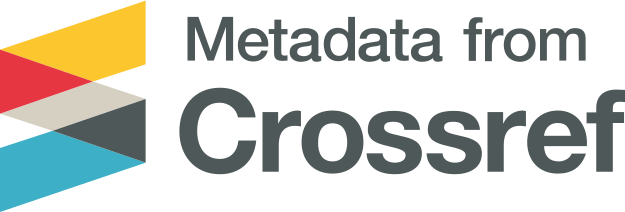Determinan Terpenting Dari Pengelolaan Keuangan Bagi Pegawai Yang Bekerja Pada Organisasi Publik
DOI:
https://doi.org/10.35838/jrap.2023.010.01.07Keywords:
Financial Attitudes, Financial Literacy, Financial Management, Self-ControlAbstract
Seeing how the concept of financial literacy has dominated as a potential predictor of quality financial management, this study aims to examine the effect of self-control, financial attitudes on financial management directly or indirectly through financial literacy. The unit of analysis specified in this study is employees working in the public sector, with the research object being employees working at BKKBN in North Sumatra Province. A total of 91 employees who were respondents in this study participated in answering a complete research survey that was distributed online. The data that has been collected is analyzed using path analysis. The research findings indicate that there is one path that is found to be insignificant, namely the effect of self-control on financial management. Compared to financial attitudes, self-control was found to be the most important determinant of financial literacy. Meanwhile, financial attitude was found to be the most important determining factor of the financial management of North Sumatra Province BKKBN employees.
Downloads
References
Agustina, I., Bin Ajis, M. N., & Pradesa, H. A. (2021). Entrepreneur’s perceived risk and risk-taking behavior in the small-sized creative businesses of tourism sector during COVID-19 pandemic. JEMA: Jurnal Ilmiah Bidang Akuntansi Dan Manajemen, 18(2), 187-209. https://doi.org/10.31106/jema.v18i2.12563
Agustina, I., & Pradesa, H. A. (2020). Gender Differences in Risk Taking Among Entrepreneurs : Case on Small Medium Enterprise in Malang. Warmadewa Management and Business Journal (WMBJ), 2(2), 63–72. https://doi.org/10.22225/wmbj.2.2.1939.63-72
Amelia, A. (2022). Pengaruh Literasi Keuangan, Sikap Keuangan, dan Kepribadian terhadap Perilaku Pengelolaan Keuangan pada Pelaku UMKM Kelurahan Gedong, Jakarta Timur. Jurnal Maksipreneur: Manajemen, Koperasi, Dan Entrepreneurship, 12(1), 129. https://doi.org/10.30588/jmp.v12i1.890
Bahiu, E. L. U., Saerang, I. S., & Untu, V. N. (2021). Pengaruh Literasi Keuangan, Pengelolaan Keuangan Terhadap Keuangan UMKM di desa Gemeh Kabupaten Kepualauan Talaud. Jurnal EMBA, 9(3), 1819-1828. https://doi.org/10.35794/emba.v9i3.36009
Dwiastanti, A. (2015). Financial literacy as the foundation for individual financial behavior. Journal of Education and Practice., 6(33), 99-105. https://files.eric.ed.gov/fulltext/EJ1083664.pdf
Fajriyah, I. L., & Listiadi, A. (2021). Pengaruh Uang Saku dan Pendidikan Keuangan Keluarga terhadap Pengelolaan Keuangan Pribadi melalui Literasi Keuangan sebagai intervening. INOVASI, Jurnal Ekonomi Keuangan Dan Manajemen, 17(1), 61-72. http://journal.feb.unmul.ac.id/index.php/INOVASI/article/view/9176
Garg, N., & Singh, S. (2018). Financial literacy among youth. International Journal of Social Economics, 45(1), 173-186. https://doi.org/10.1108/IJSE-11-2016-0303
Gunawan, A., Pirari, W. S., & Sari, M. (2020). Pengaruh Literasi Keuangan dan Gaya Hidup terhadap Pengelolaan Keuangan Mahasiswa Prodi Manajemen Universitas Muhammadiyah Sumatera Utara. Jurnal Humaniora, 4(2), 23-35.
Harijanto, D., Dharmanegara, I. B. A., Pradesa, H. A., & Tanjung, H. (2022). Do Distributive Justice Really Make Public Officers Feels More Obligated in Their Job ? Innovation Business Management and Accounting Journal, 1(1), 1-8. https://doi.org/10.56070/ibmaj.v1i1.1
Hidayanti, F., Tubastuvi, N., Purwidianti, W., & Endratno, H. (2023). The Influence of Financial Literacy, Lifestyle, Self-Control, And Peer Conformity on Student’s Consumptive Behavior. International Journal of Economics, Business and Accounting Research (IJEBAR), 7(1), 1-14.
Juliana, J. (2019). Pengaruh Inovasi Dan Pengambilan Risiko Terhadap Perkembangan Wirausaha Muda Dalam Bidang Kuliner Di Wilayah Binong Tangerang. Khasanah Ilmu - Jurnal Pariwisata Dan Budaya, 10(1), 1-12. https://doi.org/10.31294/khi.v10i1.5623
Khoirunnisaa, J., & Johan, I. R. (2020). The Effects of Financial Literacy and Self-Control towards Financial Behavior among High School Students in Bogor. Journal of Consumer Sciences, 5(2), 73-86. https://doi.org/10.29244/jcs.5.2.73-86
Kholilah, N. Al, & Iramani, R. (2013). Studi Financial Management Behavior Pada Masyarakat Surabaya. Journal of Business and Banking, 3(1), 69-80. https://doi.org/10.14414/jbb.v3i1.255
Lusardi, A., & Mitchell, O. S. (2011). Financial literacy around the world: An overview. Journal of Pension Economics and Finance, 10(4), 497-508. https://doi.org/10.1017/S1474747211000448
Lusardi, A., Mitchell, O. S., & Curto, V. (2010). Financial Literacy among the Young. The Journal of Consumer Affairs, 44(2), 358–380. http://www.councilforeconed.org/wp/wp-content/uploads/2011/11/Financial-Literacy-for-Young-Lusardi.pdf
Mandell, L., & Klein, L. S. (2009). The impact of financial literacy education on subsequent financial behavior. Journal of Financial Counseling and Planning, 20(1), 15-24.
Mawad, J. L., Athari, S. A., Khalife, D., & Mawad, N. (2022). Examining the Impact of Financial Literacy, Financial Self-Control, and Demographic Determinants on Individual Financial Performance and Behavior: An Insight from the Lebanese Crisis Period. Sustainability (Switzerland), 14(22), 151299. https://doi.org/10.3390/su142215129
Napitupulu, J. H., Ellyawati, N., & Astuti, R. F. (2021). Pengaruh Literasi Keuangan dan Sikap Keuangan Terhadap Perilaku Pengelolaan Keuangan Mahasiswa Kota Samarinda. Jurnal Pendidikan Ekonomi (JUPE), 9(3), 138-144. https://doi.org/10.26740/jupe.v9n3.p138-144
Pradinaningsih, N. A., & Wafiroh, N. L. (2022). Pengaruh Literasi Keuangan, Sikap Keuangan dan Self-Efficacy terhadap Pengelolaan Keuangan Ibu Rumah Tangga. E-Jurnal Akuntansi, 32(6), 1518. https://doi.org/10.24843/eja.2022.v32.i06.p10
Putri, I. R., & Asman, A. (2019). Pengaruh Financial Literacy dan Income terhadap Personal Financial Management Behavior pada Generasi Millennial Kota Padang. Jurnal Kajian Manajemen Dan Wirausaha, 1(1), 151-160.
Putri, N. A., & Lestari, D. (2019). Pengaruh Gaya Hidup dan Literasi Keuangan Terhadap Pengelolaan Keuangan Tenaga Kerja Muda di Jakarta. AKURASI: Jurnal Riset Akuntansi Dan Keuangan, 1(1), 31-42. https://doi.org/10.36407/akurasi.v1i1.61
Rachmawati, N., & Nuryana, I. (2020). Peran literasi keuangan dalam memediasi pengaruh sikap keuangan, dan teman sebaya terhadap perilaku pengelolaan keuangan. Economic Education Analysis Journal, 9(1), 161-181. https://doi.org/10.15294/eeaj.v9i1.37246
Rumbianingrum, W., & Wijayangka, C. (2018). Pengaruh Literasi Keuangan terhadap Pengelolaan Keuangan UMKM. Jurnal Manajemen Dan Bisnis, 2(3), 155-165. https://doi.org/10.36555/almana.v2i3.162
Saskia, D. H., & Yulhendri, Y. (2020). Pengaruh Tingkat Literasi Keuangan terhadap Pengelolaan Keuangan pada Pelaku UMKM. Jurnal Ecogen, 3(3), 365-374. https://doi.org/10.24036/jmpe.v3i3.9912
Stolper, O. A., & Walter, A. (2017). Financial literacy, financial advice, and financial behavior. Journal of Business Economics, 87(5), 581-643. https://doi.org/10.1007/s11573-017-0853-9
Sudrajat, A. A., & Azib, A. (2022). Pengaruh Literasi Keuangan dan Sikap Keuangan Terhadap Perilaku Pengelolaan Keuangan. Jurnal Riset Manajemen Dan Bisnis, 2(2), 35-40. https://doi.org/10.35706/acc.v4i2.2208
Sugiharti, H., & Maula, K. A. (2019). Pengaruh Literasi Keuangan Terhadap Perilaku Pengelolaan Keuangan Mahasiswa. Accounthink : Journal of Accounting and Finance, 4(2), 804-818. https://doi.org/10.35706/acc.v4i2.2208
Tanjung, H., Agustina, I., & Pradesa, H. A. (2022). Explaining Compensation Satisfaction Among Public Officers from Equity and Expectancy Perspective. Publik (Jurnal Ilmu Administrasi), 11(1), 28-44. https://doi.org/10.31314/pjia.11.1.28-44.2022
Utami, L. P., & Marpaung, N. N. (2022). Pengaruh Literasi Keuangan dan Gaya Hidup Terhadap Pengelolaan Keuangan Karyawan (Studi di PT. Mulia Boga Raya Tbk). Parameter, 7(1), 96-108. https://doi.org/10.37751/parameter.v7i1.191
Widyakto, A., Liyana, Z. W., & Rinawati, T. (2022). The influence of financial literacy, financial attitudes, and lifestyle on financial behavior. Diponegoro International Journal of Business, 5(1), 33-46. https://doi.org/10.14710/dijb.5.1.2022.33-46
Downloads
Published
Issue
Section
License
Authors who publish with this journal agree to the following terms:
- Authors retain copyright and grant the journal right of first publication with the work simultaneously licensed under a Creative Commons Attribution-ShareAlike 4.0 International License that allows others to share the work with an acknowledgement of the works authorship and initial publication in this journal.
- Authors are able to enter into separate, additional contractual arrangements for the non-exclusive distribution of the journals published version of the work (e.g., post it to an institutional repository or publish it in a book), with an acknowledgement of its initial publication in this journal.
- Authors are permitted and encouraged to post their work online (e.g., in institutional repositories or on their website) prior to and during the submission process, as it can lead to productive exchanges, as well as earlier and greater citation of published work (See The Effect of Open Access).














